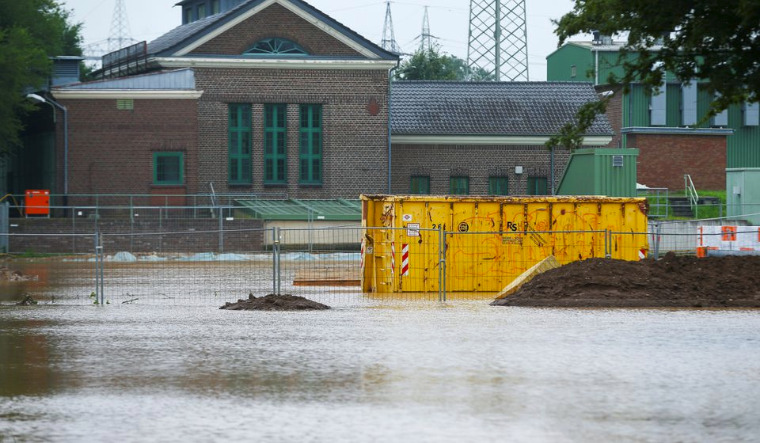The death toll from devastating floods across parts of western Germany and Belgium rose above 90 on Friday, as the search continued for hundreds of people still unaccounted for and officials warned such disasters could become more common due to climate change.
Authorities in the German state of Rhineland-Palatinate said 50 people had died there, including at least nine residents of an assisted living facility for people with disabilities. In neighboring North Rhine-Westphalia state officials put the death toll at 30, but warned that the figure could rise further.
Some 1,300 people in Germany were still reported missing, though authorities said efforts to contact them could be hampered by disrupted roads and phone connections.
In a provisional tally, the Belgian death toll has risen to 12, with 5 people still missing, local authorities and media report early Friday.
The flash floods this week followed days of heavy rainfall which turned streams and streets into raging torrents that swept away cars and caused houses to collapse across the region.
Chancellor Angela Merkel and US President Joe Biden expressed their sorrow over the loss of life during a news conference at the White House late Thursday.
The long-time German leader, who was on a farewell trip to Washington, said she feared that “the full extent of this tragedy will only be seen in the coming days.”
Rescuers were rushing Friday to help people trapped in their homes in the town of Erftstadt, southwest of Cologne. Regional authorities said several people had died after their houses collapsed due to subsidence, and aerial pictures showed what appeared to be a massive sinkhole.
Three people were rescued from the Wurm River in Heinsberg county late Thursday.
The governor of North Rhine-Westphalia state, Armin Laschet, has called an emergency Cabinet meeting Friday. The 60-year-old's handling of the flood disaster is widely seen as a test for his ambitions to succeed Merkel as chancellor in Germany's national election on September 26.
Malu Dreyer, the governor of neighboring Rhineland-Palatinate state, said the disaster showed the need to speed up efforts to curb global warming.
“We've experienced droughts, heavy rain and flooding events several years in a row, including in our state,” she told the Funke media group. “Climate chance isn't abstract anymore. We are experiencing it up close and painfully.”
She accused the Laschet and Merkel's center-right Union bloc of hindering efforts to achieve greater greenhouse gas reductions in Germany, Europe's biggest economy and a major emitter of planet-warming gases.
The German army has deployed 900 soldiers to help with the rescue and clear-up efforts.
Thousands of people remain homeless after their houses were destroyed or deemed at-risk by authorities, including several villages around the Steinbach reservoir that experts say could collapse under the weight of the floods.
Across the border in Belgium, most of the drowned were found around Liege, where the rains hit hardest. Skies were largely overcast in eastern Belgium, with hopes rising that the worst of the calamity was over.
In the southern Dutch province of Limburg, troops piled sandbags to strengthen a 1.1 kilometer (0.7 miles) stretch of dike along the Maas river and police helped evacuate some low-lying neighborhoods.
Caretaker Prime Minister Mark Rutte said Thursday night that the government was officially declaring flood-hit regions a disaster area, meaning businesses and residents are eligible for compensation for damage.
Meanwhile, sustained rainfall in Switzerland has caused several rivers and lakes to break their banks. Public broadcaster SRF reported that a flash flood swept away cars, flooded basements and destroyed small bridges in the northern villages of Schleitheim und Beggingen late Thursday.




